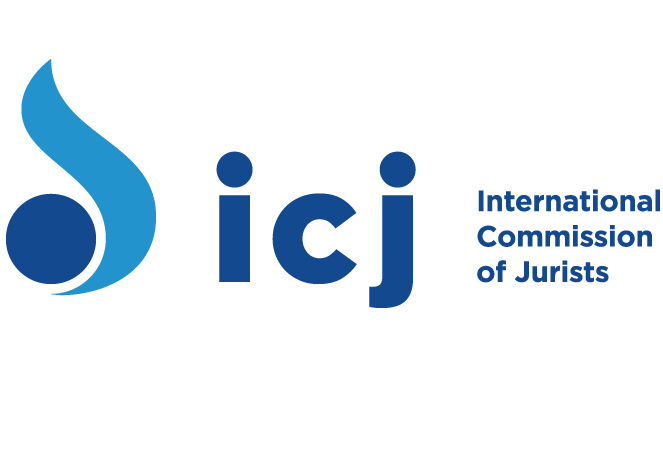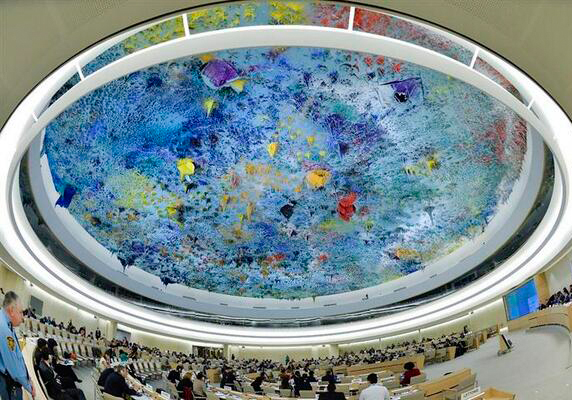
Jun 29, 2012 | Advocacy, Non-legal submissions
 During the Human Rights Council’s 20th regular session in Geneva, the ICJ delivered an oral statement concerning the engagement of countries with visits by the Special Procedures of the Human Rights Council.
During the Human Rights Council’s 20th regular session in Geneva, the ICJ delivered an oral statement concerning the engagement of countries with visits by the Special Procedures of the Human Rights Council.

Jun 28, 2012 | Advocacy, Non-legal submissions
 During the 20th regular session of the Human Rights Council, the UN Working Group on human rights and transnational corporations presented its first report to the Council. The ICJ commented.
During the 20th regular session of the Human Rights Council, the UN Working Group on human rights and transnational corporations presented its first report to the Council. The ICJ commented.

Jun 21, 2012 | Advocacy, Non-legal submissions
 The ICJ statement draws attention to recent laws that threaten the right to freedom of expression of LGBT persons, noting examples that fail the tests of certainty, necessity and non-discrimination.
The ICJ statement draws attention to recent laws that threaten the right to freedom of expression of LGBT persons, noting examples that fail the tests of certainty, necessity and non-discrimination.

Jun 14, 2012 | Advocacy, Non-legal submissions
 The ICJ, together with 21 other nongovernmental organisations, today participated in the 19th Annual Meeting of the Human Rights Council Special Procedures.
The ICJ, together with 21 other nongovernmental organisations, today participated in the 19th Annual Meeting of the Human Rights Council Special Procedures.
Following up on a joint NGO statement from the 18th Annual Meeting of the Special Procedures in 2011, the group of NGOs welcomed recent positive developments and raised certain issues for particular attention and discussion regarding the work and functioning of the Special Procedures.
HRC-SpecialProcedures-NGOJointLetter-non-legal submission (2012) (download joint letter in PDF)
ICJ-SP-AM19-OralStatement-non-legal submission (2012) (download ICJ oral statement in PDF)

Jun 11, 2012 | Advocacy, Non-legal submissions
The ICJ, together with other NGOs, submitted four documents and oral statements to the 19th Annual Meeting of the Special Procedures of the Human Rights Council.
From 11 to 15 June 2012, the Special Procedures of the Human Rights Council will undertake its 19th Annual Meeting. On behalf of 22 non-governmental organisations, the ICJ addressed an open letter dated 1 June 2012 to the Coordination Committee of the Special Procedures. Building on a Joint Statement produced following the 18th Annual Meeting in 2011, the letter welcomes some positive developments and initiatives, and provides comments or suggestions for improvement on the following topics:
- the communications reports of the Special Procedures;
- the handling of urgent appeals and individual communications;
- non-cooperation by States;
- reprisals against persons who cooperate with the UN;
- the OHCHR compilation of UN information for the Universal Periodic Review;
- NGO briefings conducted in the margins of Human Rights Council sessions; and
- the Special Procedures “facts and figures”.
In an oral statement during the Annual Meeting, the ICJ also drew attention to the recently elaborated Maastricht Principles on Extraterritorial Obligations of States in the area of Economic, Social and Cultural Rights.

 During the Human Rights Council’s 20th regular session in Geneva, the ICJ delivered an oral statement concerning the engagement of countries with visits by the Special Procedures of the Human Rights Council.
During the Human Rights Council’s 20th regular session in Geneva, the ICJ delivered an oral statement concerning the engagement of countries with visits by the Special Procedures of the Human Rights Council.










